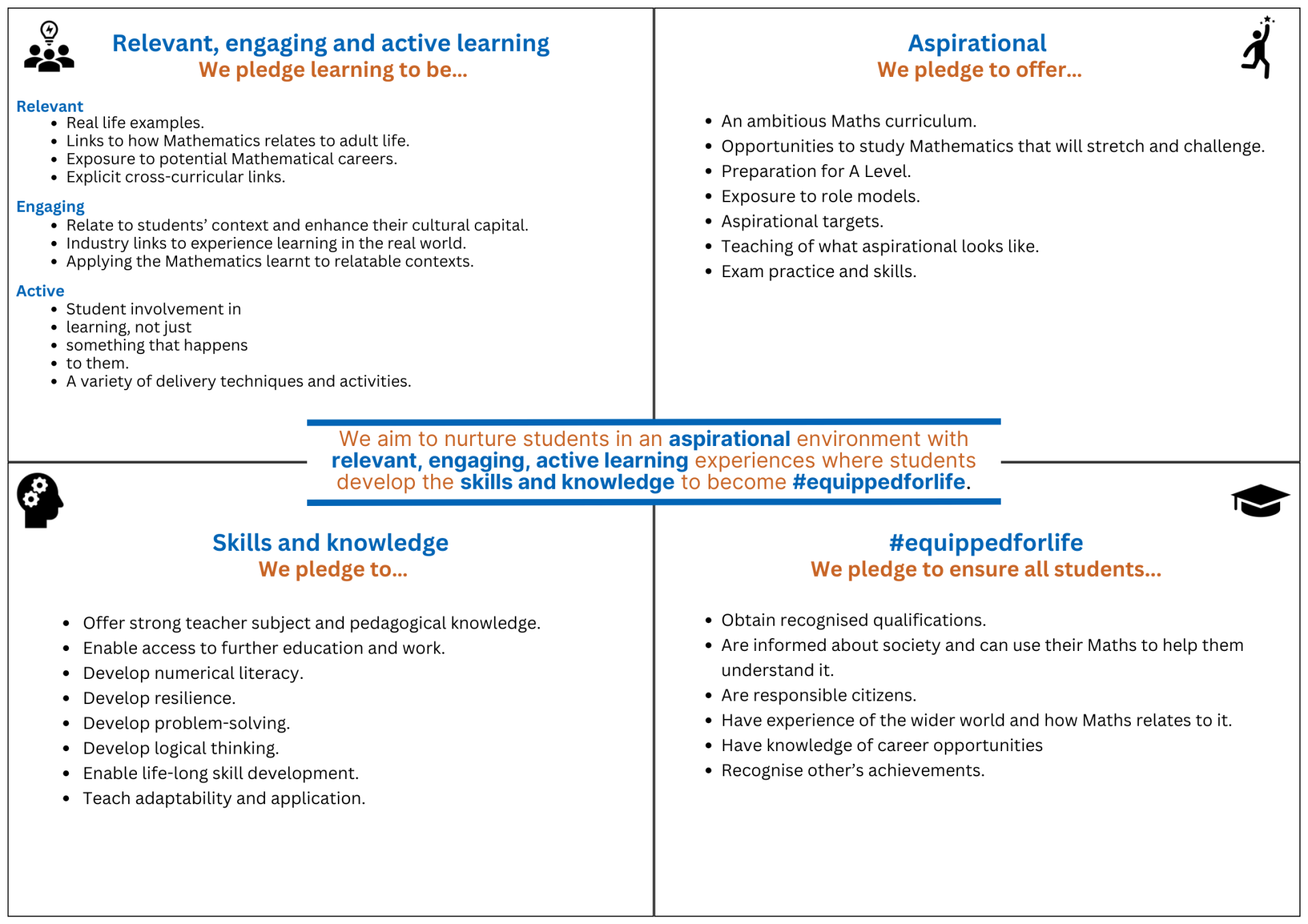Maths
| Subject Exam Boards | |
| GCSE Mathematics | Pearson Edexcel |
| A-Level Mathematics | Pearson Edexcel |
| Core Maths | AQA |
The mathematics department vision is to develop students work ethic, mathematical reasoning, problem solving and resilience in order to support all students to be equipped for their next steps and life after school.

Subject Pledge

Curriculum Overview
Key Stage 3
Key Stage 4
Key Stage 5
More Department Information
KS3
The purpose of the curriculum is to ensure that students learn, develop and practice mathematical skills they require to access the GCSE curriculum. Students need to be able to recall and apply their understanding throughout their time learning the subject. The topics are placed in a specific order so that the students can build upon their previous knowledge to access what is next, without this there is a lack of understanding. Students are stretched and challenged depending on their ability ensuring that, when they move on to complete their GCSEs, they can achieve the grade they deserve.
KS4
The Westgate Mathematics KS4 Curriculum builds on Key Stage 3 from the start of Year 9 with the aim of pupils succeeding in their mathematical learning within the GCSE setting. Through its teaching it aims to unlock barriers to learning and provide swift and appropriate intervention to ensure all pupils stay on track and master all key areas prescribed within the curriculum. The aim at all stages is to address errors, misconceptions and any misunderstanding so that gaps in learning do not occur and form a barrier to future learning. A pre-emption of cumulative disfluency is therefore a key component of the Westgate curriculum.
In its design in every year group, the curriculum reflects the requirements within the GCSE to develop pupils’ understanding of fractions, decimals, percentages, ratio and algebra and apply this to all areas of mathematical learning and experience they encounter.
By the end of the first term in Year 11 the students should have covered all the specification. At this point we use the mock examination results to form a detailed, question by question data analysis to determine bespoke programmes of study for each class. This also provides personal feedback for each individual. This is then re-evaluated after mock examinations in March/April and the same style of analysis is used to inform staff and students up until the summer exams.
KS5
The A level Maths content is organised so that all the AS material is taught in Year 12 before teaching of the A Level content begins. This is largely because the hierarchical nature of mathematics makes this the most logical order, but also so that students are prepared for any university entrance exams they may face. Topics are ordered so that new information builds on prior learning, ensuring that prerequisites precede the topics which rely on them. Topics from different strands which are related are grouped together, such as kinematics with differentiation and the binomial distribution with the binomial expansion.
For further information, please contact our Head of Department
Mr C Campbell ~ cca@westgate.slough.sch.uk
Mathematics knows no races or geographic boundaries; for mathematics, the cultural world is one country. ~David Hilbert








